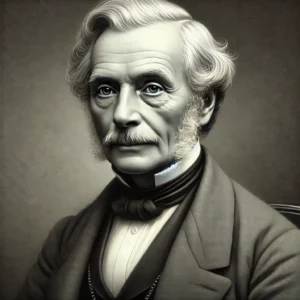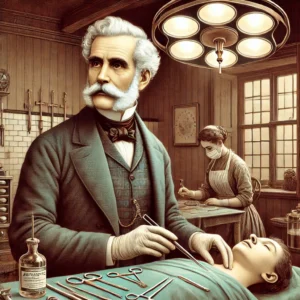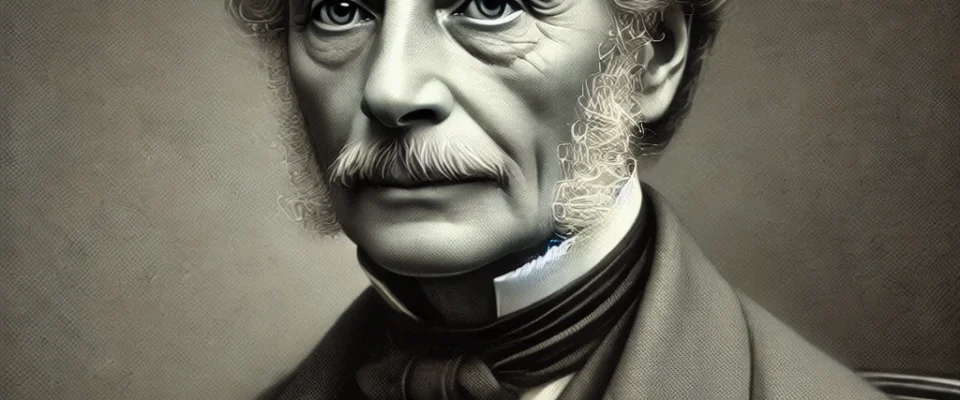Joseph Lister was a British surgeon, renowned for pioneering the application of antiseptic techniques in surgery, which significantly reduced infection rates and mortality after operations. He is considered the “father of antiseptic surgery.”

1. Life and Education
– Born: April 5, 1827, in Upton, Essex, England.
– Died: February 10, 1912, in Walmer, Kent, England.
– Education: Lister studied at the University of London, where he graduated in medicine in 1852.
2. Major Contributions:
Development of Antiseptic Surgery:
– Lister adopted and applied Louis Pasteur’s germ theory to the field of surgery. He believed that airborne bacteria could cause infections after surgery.
– He used carbolic acid (phenol) to sterilize surgical instruments, wounds, and even the air in the operating room, significantly reducing the risk of infection.
– This method proved highly successful and was rapidly adopted, revolutionizing the field of surgery.
Influence and Impact:
– Lister’s methods led to the development of modern antiseptic techniques, including the use of surgical gloves, gowns, and the sterilization of medical instruments.
– He was widely honored and received numerous accolades throughout his life, including being made a Baron (Baron Lister) in 1897.
3. Legacy and Impact:
– Surgery: Lister is regarded as the “father of antiseptic surgery,” and his methods have saved countless patients worldwide.
– Medicine: His work fundamentally changed the medical field’s approach to preventing infections, laying the foundation for modern medical practices.
– Awards and Honors: Many hospitals, research institutes, and medical organizations have been named after Lister to honor his significant contributions.
Joseph Lister was a visionary scientist who left an important legacy in medicine, particularly in the field of antiseptic surgery. The principles he established are still widely applied in modern medicine today.

